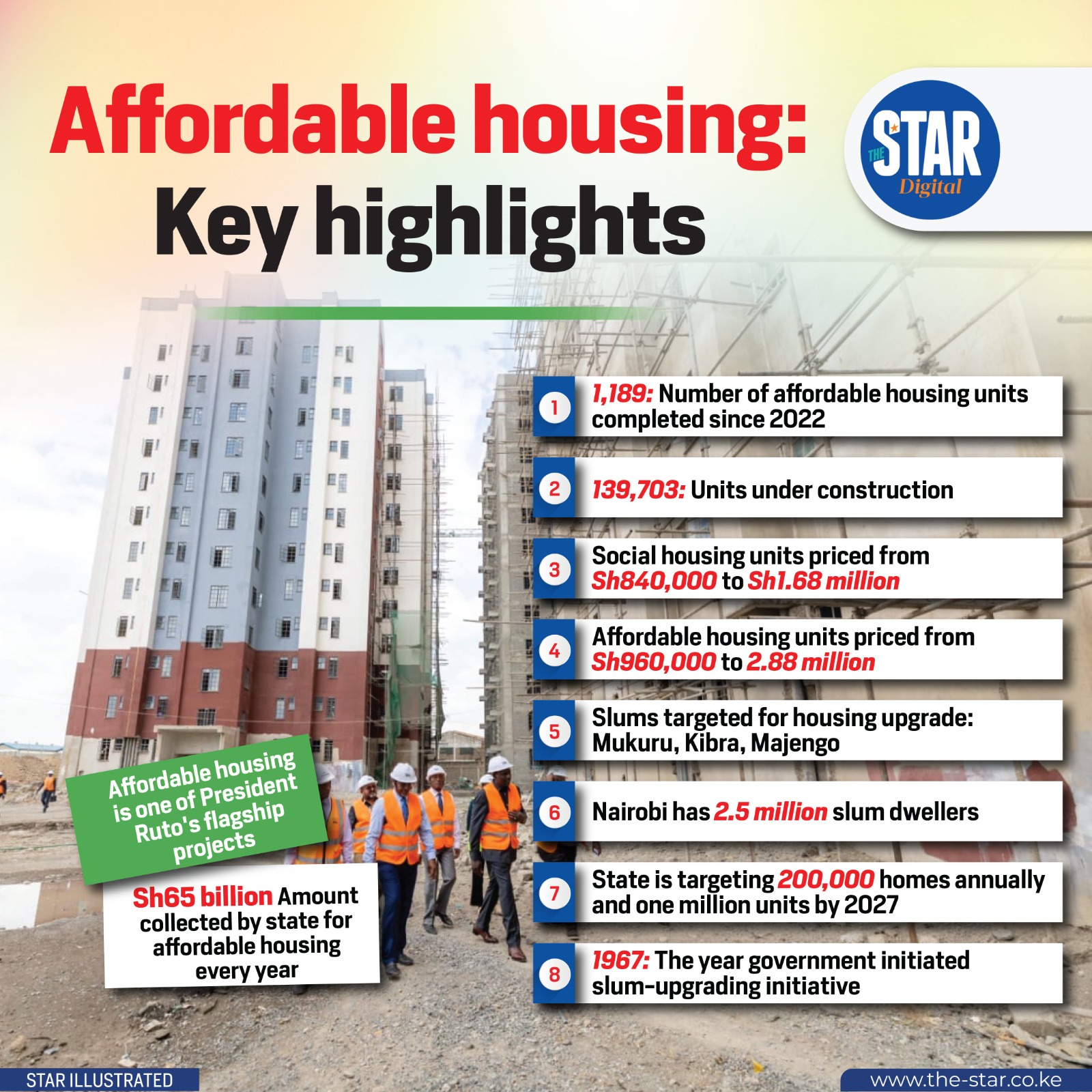Kenya’s affordable housing sector presents a significant opportunity for both local and foreign investors. As the government pushes forward with the Affordable Housing Programme (AHP), more developers and investors are eyeing this high-demand segment of the real estate market.
What Drives Affordable Housing Demand?
Kenya has a housing deficit of over 2 million units, growing by 200,000 units annually. The demand is especially high among low- and middle-income earners. Urbanization, population growth, and internal migration to cities like Nairobi, Mombasa, and Kisumu are increasing the need for low-cost housing.
Key Government Initiatives
- Affordable Housing Programme (AHP): A state-led initiative to deliver 500,000 housing units.
- Housing Levy: A 1.5% contribution from employers and employees to fund affordable housing development.
- Boma Yangu Platform: A digital portal for Kenyans to register and apply for affordable housing units.
Investment Opportunities
- Public-Private Partnerships (PPPs): Collaborate with government and receive incentives like land and tax relief.
- Off-Plan Housing Projects: Invest early and sell or lease upon completion for profits.
- Build-to-Rent Models: Develop affordable rental housing with consistent monthly income.
Risks to Consider
- Unclear government policy implementation timelines.
- Long return-on-investment periods due to low-cost nature of the housing.
- Possible legal disputes over land ownership or development rights.
Best Locations for Investment
Affordable housing projects are booming in:
- Ruiru and Thika in Kiambu County
- Athi River and Mlolongo in Machakos County
- Ngong and Ongata Rongai in Kajiado
- Eldoret, Nakuru, and Kisumu for upcountry investments
Why Now is the Right Time
With supportive government policies, growing demand, and increasing urbanization, the affordable housing market is positioned for rapid growth. Investors who enter the market early are likely to benefit from capital appreciation and rising rental yields.
Conclusion
Kenya's affordable housing sector is more than a social mission—it's a lucrative investment opportunity. With the right due diligence, partnerships, and long-term view, real estate investors can gain strong returns while contributing to the nation's housing goals.




